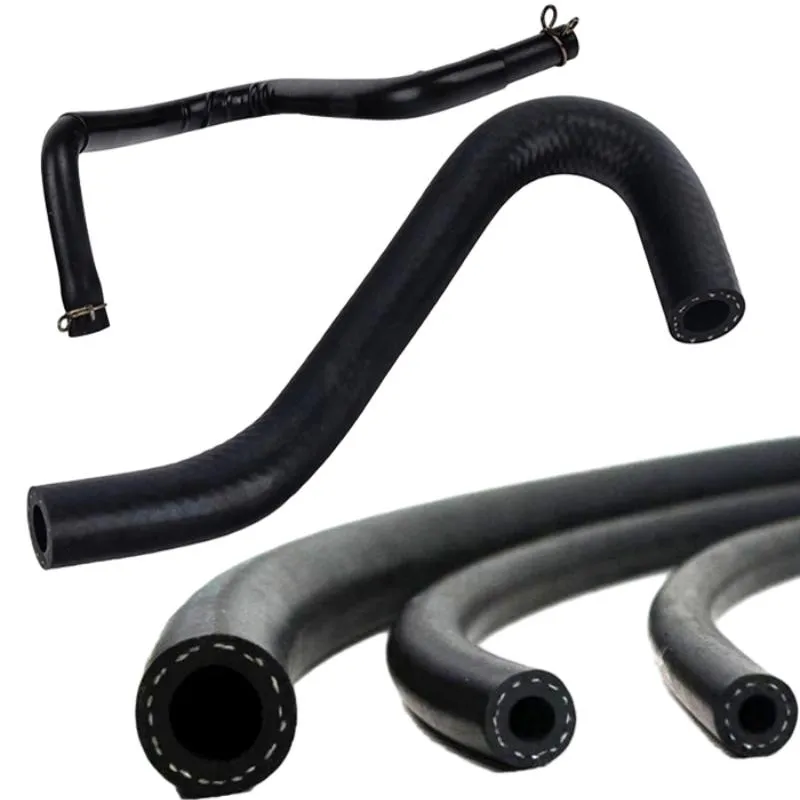Custom Fuel Line Solutions for Your Vehicle's Unique Needs and Requirements
Nov . 09, 2024 00:20 Back to list
Custom Fuel Line Solutions for Your Vehicle's Unique Needs and Requirements
Understanding Custom Fuel Lines Enhancing Performance and Reliability
Custom fuel lines are essential components in automotive, marine, and aerospace industries where precision and efficiency are paramount. In these fields, the need for tailored solutions arises from various factors including the need for performance enhancement, safety, and reliability under diverse operating conditions. This article explores the significance of custom fuel lines, their advantages, materials used, and the considerations for their design and installation.
The Importance of Custom Fuel Lines
Fuel lines serve the critical role of transporting fuel from the tank to the engine or combustion chamber. Standard fuel lines are designed for general applications and may not meet the specific requirements of high-performance vehicles or specialized machinery. Custom fuel lines, on the other hand, are engineered to meet precise specifications, improving fuel delivery and overall performance. They can withstand high pressures, resist corrosion, and adapt to unique routing configurations.
One of the primary drivers behind the need for custom fuel lines is the enhancement of engine performance. In high-performance engines or aftermarket modifications, ensuring a consistent and reliable fuel supply is crucial. Custom fuel lines are often designed to minimize flow resistance, allowing for improved fuel delivery which can lead to increased horsepower and efficiency.
Advantages of Custom Fuel Lines
1. Improved Durability Custom fuel lines are often made from premium materials designed to withstand extreme conditions, including high temperatures, pressures, and exposure to corrosive fuels. This can significantly reduce the risk of leaks and failures.
2. Optimal Performance Tailored fuel lines can help optimize the fuel flow path, improving the engine's overall efficiency. This is particularly important in performance racing applications where every second counts.
3. Weight Reduction In many cases, custom fuel lines can be designed to be lighter than standard options, contributing to overall weight savings in vehicles. This is especially beneficial in racing contexts where weight-to-power ratios are critical.
4. Flexibility in Design Custom fuel lines can be made to fit precise dimensions and routing requirements, accommodating complex layouts in modern vehicles. This flexibility ensures that fuel lines do not interfere with other components and systems.
5. Enhanced Safety Custom designs can include features that enhance safety, such as abrasion-resistant coverings, fire-resistant materials, and custom fittings that reduce the risk of disconnection or leaks.
Materials Used in Custom Fuel Line Construction
The choice of materials is pivotal when designing custom fuel lines. Common materials include
custom fuel line

- Stainless Steel Known for its corrosion resistance and durability, stainless steel is often used in environments prone to moisture and chemical exposure.
- Aluminum Lightweight and easily shaped, aluminum is a popular choice for performance applications, although it may not offer the same level of durability as stainless steel.
- Rubber and Synthetic Hoses These materials offer flexibility and resistance to fuel, though care must be taken to select grades that can withstand high-pressure systems.
- PTFE (Teflon) This material is increasingly used for its superior chemical resistance and ability to handle high temperatures, making it an excellent choice for custom applications.
Considerations for Design and Installation
When designing and installing custom fuel lines, several factors must be considered
1. Pressure Ratings Custom fuel lines must be rated for the pressures they'll encounter. High-performance engines can produce significant fuel pressures, and lines must be designed to handle these forces without risk of failure.
2. Routing and Accessibility The routing of the fuel lines should avoid sharp bends and unnecessary distances to maintain optimal flow. Additionally, lines should be accessible for maintenance and inspection.
3. Fittings and Connections Custom fittings should be carefully selected to ensure compatibility with both the fuel line and the engine components, preventing leaks and ensuring integrity.
4. Regulatory Compliance Certain applications, particularly in aviation and marine contexts, may require adherence to specific regulations regarding fuel systems. It's essential to ensure compliance with these standards during the design process.
Conclusion
Custom fuel lines play a vital role in enhancing the performance, reliability, and safety of various vehicles and machinery. By understanding the importance of tailored solutions and considering factors such as material selection and routing design, enthusiasts and professionals alike can significantly improve their system's efficiency and longevity. Whether for a high-performance race car or specialized industrial equipment, investing in custom fuel lines is a smart choice for achieving optimal results.
